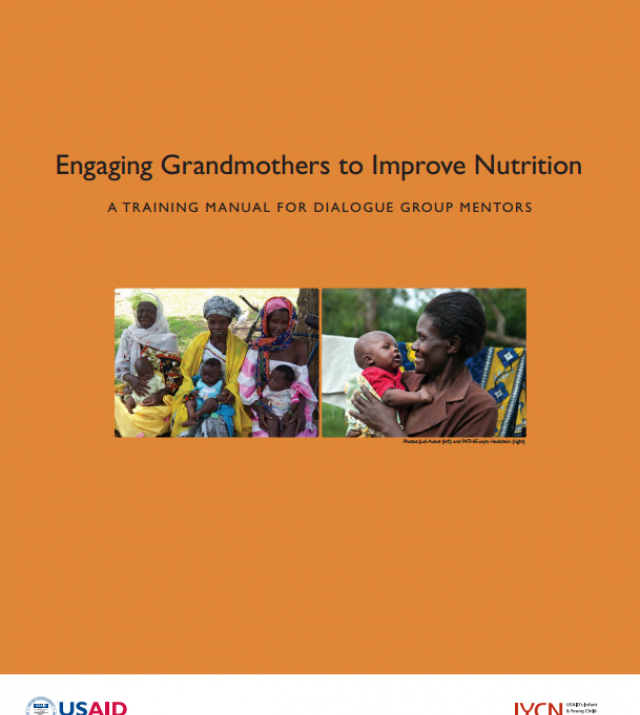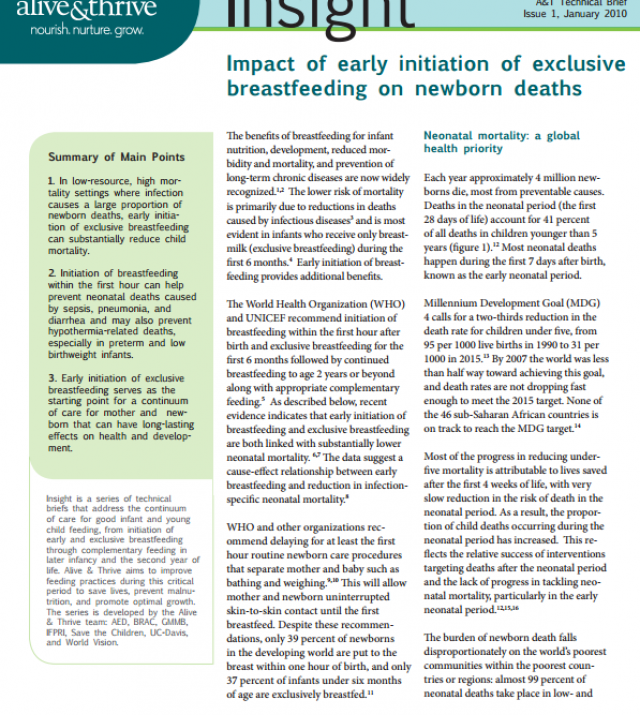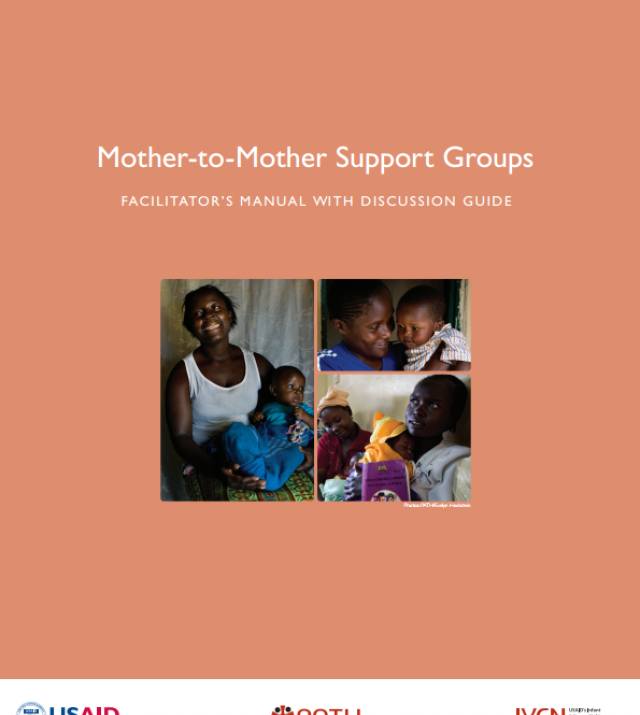
Mobilizing Communities for Improved Nutrition: A Manual and Guide for Training Community Leaders

This resource contains two documents:
1. Mobilizing Communities for Improved Nutrition: A Manual for Training Community Leaders
This guide provides instructions for facilitating a one-day workshop with community leaders (e.g., community, religious, and business leaders and government officials) to support and improve children’s health and well-being through improved infant and young child feeding and maternal dietary practices. Community leaders have the influence and responsibility to share information and create a supportive environment that can improve practices and contribute to healthier communities. The more people know about how to feed their children—and the more support they have to carry out these practices—the fewer children will die and get sick. Poor infant feeding practices put children’s lives and development at risk. This workshop will help community leaders to share helpful information in their communities, increase discussion and reflection on nutrition-related topics, and support families to feed their children well. Community leaders can be a part of the government’s commitment to create an environment that allows all women, families, and communities to feed their children in the best way and save lives.
This workshop will allow participants to better understand the importance of optimal infant and young child feeding practices and become new advocates for nutrition in their communities. In order for this workshop to be effective, participants should actively participate in the discussion, share experiences, ask questions, and learn from each other. The following are suggestions on how to encourage participation during the workshop by using an interactive format and ensuring the content is relevant to participants’ experiences. Although some of the workshop will consist of presenting information, encourage participants to ask questions and share experiences after a presentation to increase discussion. Participation is important because it allows people to feel involved and engaged with the content, and learn from each other.
2. Mobilizing Communities for Improved Nutrition: A Guide for Community Leaders
In order to live, we must eat. The kind of food we eat affects how our bodies work. Not eating enough or not eating the right kinds of foods can cause people to have a higher risk of illness and death. Children are especially at risk when they do not eat properly. When children are not fed properly, they become malnourished and their bodies are less able to fight off disease and infection. Not eating properly, falling ill often, not being well-cared after, and poor hygiene and sanitation cause babies and young children to become malnourished. If a woman is malnourished during pregnancy, or if her child is malnourished during the first two years of life, the child’s physical and mental growth and development may be slowed. This cannot be made up when the child is older—it will affect the child for the rest of his or her life. For this reason, how women eat during pregnancy and how children are fed during the first two years of life are especially important. Children have the right to a caring, protective environment and to healthy food and basic health care to protect them from illness and promote growth and development.
This guide provides information aimed directly at community leaders that will help them support women and families to follow recommended practices concerning the issues above.

